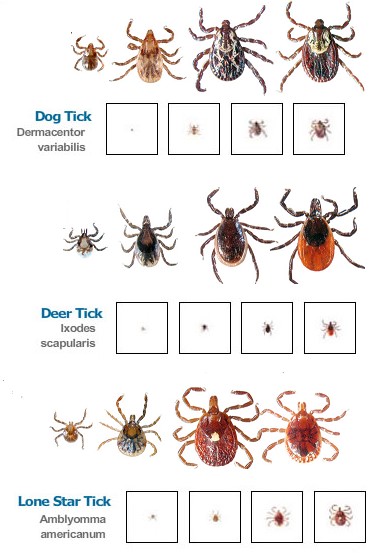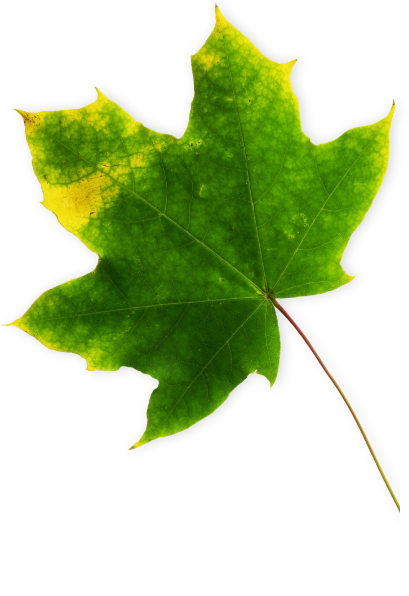Ticks are potentially dangerous parasites that feed on many different animals including small mammals and birds, namely mice, chipmunks, and squirrels. They also will feed on large mammals like deer, dogs, and humans. Their ability to transmit diseases its what makes them such a problem and the reason tick control is important.
Tick Species
 The primary tick species in Massachusetts is the black-legged tick, commonly called a deer tick. We also have the common dog tick and the Lonestar tick, a newer introduced tick in the region that is expanding its range on Cape Cod. The most common tick-borne diseases in Massachusetts are Lyme disease, Babesiosis, and Anaplasmosis. Less common but still important to be aware of is Tularemia, Rocky Mountain spotted fever, Borrelia, and Powassan virus. For more information about these diseases visit the CDC website or Mass.gov.
The primary tick species in Massachusetts is the black-legged tick, commonly called a deer tick. We also have the common dog tick and the Lonestar tick, a newer introduced tick in the region that is expanding its range on Cape Cod. The most common tick-borne diseases in Massachusetts are Lyme disease, Babesiosis, and Anaplasmosis. Less common but still important to be aware of is Tularemia, Rocky Mountain spotted fever, Borrelia, and Powassan virus. For more information about these diseases visit the CDC website or Mass.gov.
Tick Lifecycle
Ticks can be active any time of the year even in the winter if the temperature comes above 40°F. Tick control is one of the best ways to keep from picking up ticks in your own yard. Treating around the perimeter of the property and other likely tick habitats with an insecticide is a great option. This can be done with organic insecticides, but traditional chemical insecticides tend to last longer.
Besides treating your yard regularly to control ticks directly in the yard, here are some steps you can take to help protect yourself, family and pets from ticks and the diseases they carry.
Repellents and permethrin-treated clothes
Wear long-sleeved shirts and long pants with lighter colors so ticks can be easily seen and removed. There are also products designed for treating clothing that will kill ticks. Once the clothing is impregnated it will not wash out for several washes and won’t absorb into your skin. Repellents that contain DEET are best applied to exposed skin to prevent tick bites.
Regular yard maintenance
Ticks require damp environments with tall vegetation to climb on in order to quest for hosts. This is why you typically will not find ticks within the maintained part of your lawn, but around the transitional edges and shrub beds. Clean up leaf litter and keep the grass mowed regularly. Tallgrass, leaves and excessive brush will create habitat the ticks and rodents will like.
Clean up spilled birdseed from bird feeders
Doing what you can to keep critters away from the yard can also help keep ticks out of the yard. The birdseed will attract more than just birds to your yard they will also bring mice, chipmunks, and squirrels that may be carrying ticks. If you still want to feed the birds, clean under bird feeders regularly to keep from attracting other wildlife.
Create a buffer of mulch around the perimeter of the yard
Mulching beds and the perimeter of the yard particularly can help create a buffer zone that ticks will not inhabit. A 3-foot wide strip of mulch or wood chips can help keep ticks from migrating into the maintained landscape. Similarly keeping play sets away from wooded edges will help reduce the chances of coming in contact with ticks when they are looking to latch onto new hosts.
Treat pets
Family dogs are common carriers of ticks into the home if not treated. Dogs will also tend to go further into wooded edges beyond typical perimeter treatments and pick up ticks outside the treated area. There are many different kinds of pet treatments out there for mosquito and tick control. There are spot treatments, collars and bath treatments all with different advantages and disadvantages. Talk to your vet about what treatments will work best for you and your pet.
For more information about our 4-visit Organic Tick Control program please click here or call us today at 781-297-3674.
